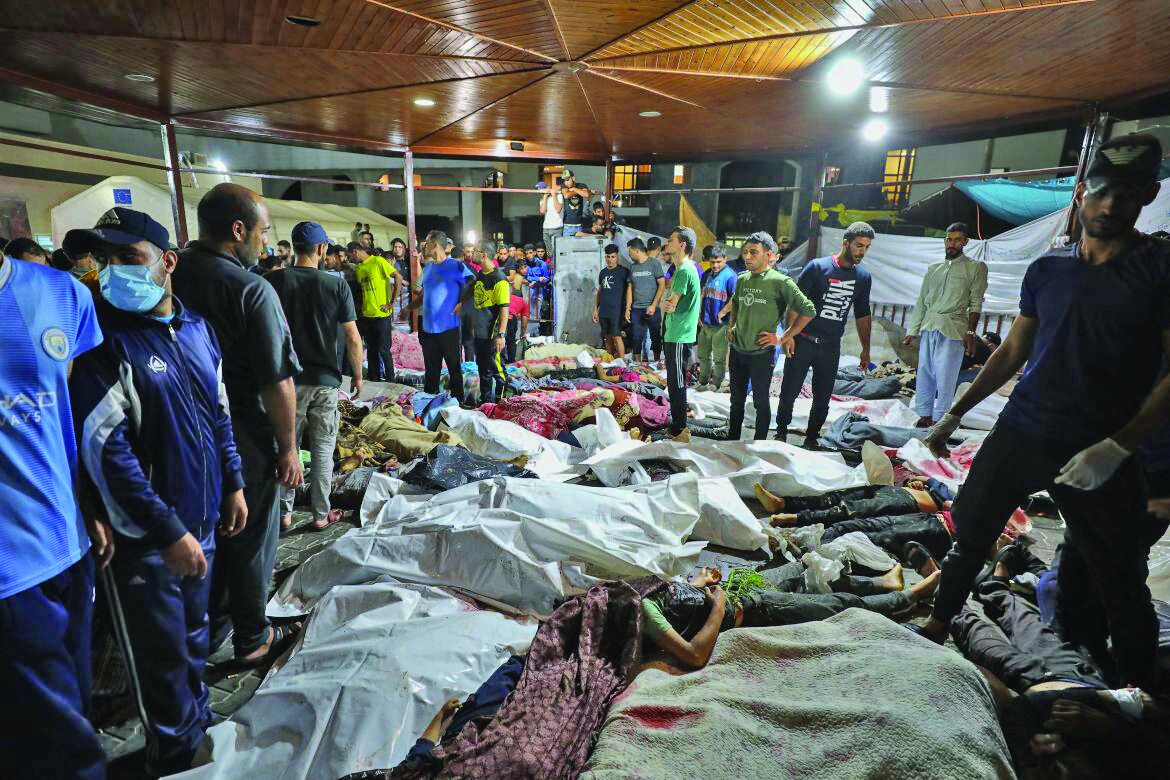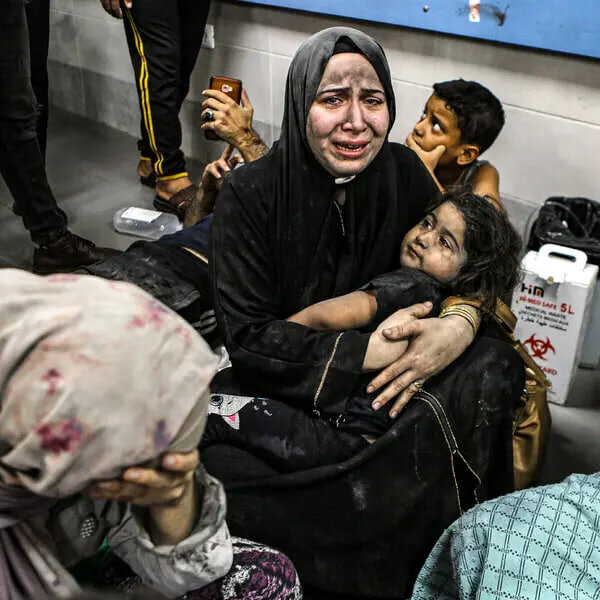Gaza: A touchstone of human rights and resilience in a compact territory

In the heart of a tumultuous region, Gaza symbolizes resilience and endurance within its modest 360 square kilometers.
Bordered by occupied territories to the north and east, and Egypt to the south, this narrow strip of land stretches 41 kilometers in length, with a width varying between six to twelve kilometers. Despite its limited expanse, Gaza is home to a remarkable two million people, making it one of the world's most densely populated areas, where nearly six thousand individuals inhabit every square kilometer.
The majority of Gaza's residents are descendants of Palestinian refugees who were tragically displaced from their homes during the 1948 war between Israel and the Arab states.
Today, their resilience and determination characterize Gaza. As a vibrant community, they symbolize power endurance by resisting relentless dreadful attacks. They are proving that nothing can undermine their iron will for justice.

In the wake of ‘Al-Aqsa Storm’ operation on October 7, the vengeful retaliation of the Israeli regime against the people of Gaza commenced. For nearly two weeks now, the world has been horrified by the most savage acts perpetrated by the ruthless Israeli regime.
According to the latest figures, more than 4,000 Palestinians have been martyred in the Zionist regime's attacks, and 13,000 individuals have been injured. Shockingly, half of the casualties include innocent children and women.
However, in a joint press conference with Saudi Foreign Minister Prince Faisal bin Farhan Al Saud in Riyadh, Antony Blinken labeled all the crimes of the Zionist Israeli regime as examples of legitimate self-defense.
What supporters of the Zionist regime have overlooked is the profound significance of human rights for the residents of Gaza. Human rights constitute the most fundamental and basic rights inherent to every individual, merely by virtue of being human.
According to the Universal Declaration of Human Rights and other international documents, these rights are universal, inherent, inalienable, and equal for all humans. The first principle of human rights is the right to life, which cannot be arbitrarily taken away from any individual. The second principle is the prohibition of torture. Are the residents of Gaza not part of the human community? For over two weeks, they have been deprived of water, electricity, entry of essential food and medicine. The fundamental principles of human rights have been disregarded. During this period, the most significant actions of the Zionist regime, exemplifying the blatant disregard for human rights, are outlined below:
Violations of human rights by Israel since the beginning of attack on Gaza
1) Cutting off water and electricity
2) Preventing food and medicine supply
3) Destruction by bombs: Dropping over 6,000 bombs on the people of Gaza over eight days.
4) Massacre of civilians: The killing of more than 4000 individuals in Gaza, averaging 1 martyr every 5 minutes.
5) Children victims: The killing of over 1500 children within the past eight days.
6) Destroying more than two dozen ambulances and demolishing over 19 hospitals in Gaza.
7) Issuing forced evacuation orders to the people of Gaza.
8) Demolishing more than 5,540 residential buildings and causing damage to 3,750 other homes until the eighth day of the war.
9) Genocide of more than 433 families in attacks to Gaza
On the other hand, alongside all these blatant violations of human rights by Israel, its supporters argue that the regime is acting in legitimate self-defense under Article 51 of the United Nations Charter. According to the UN Charter, in the event of an armed attack against a member of this organization, until the Security Council takes necessary measures to maintain international peace and security, none of the provisions of this Charter shall impair the inherent right of individual or collective self-defense. Members must immediately report to the Security Council actions taken in exercising this right of self-defense.
However, these actions do not absolve the responsibilities outlined in the Charter under the Security Council, which shall take necessary actions at any time to maintain or restore international peace and security, irrespective of any actions performed under this right of self-defense.
In fact, legitimate defense, whether individual or collective, is the cornerstone of collective security. Collective security inherently involves a defensive nature, not a suppressive one. Even if it takes a punitive nature, it falls under defensive principles, as stated in Chapter VII of the United Nations Charter.
The reality, however, is that the actions of the Zionist regime are not defensive but aggressive. The truth remains that the right to legitimate defense is more readily accepted for the people of Palestine—people who have been displaced from their homes for over seven decades. Their children are bathed in the blood of their ancestors daily, yearning for the freedom that has been denied to them under the guise of peace.
Now, Gaza stands as a symbol of injustice and double standards in legal rights. A narrow strip which has been reduced to rubble during the regime's bombardments, where the laughter of children is no longer heard. Depriving the residents of their basic needs is a clear violation of international law and humanitarian principles. Yet, for supporters of the Zionist regime, this issue seems to hold no urgency.
Leave a Comment